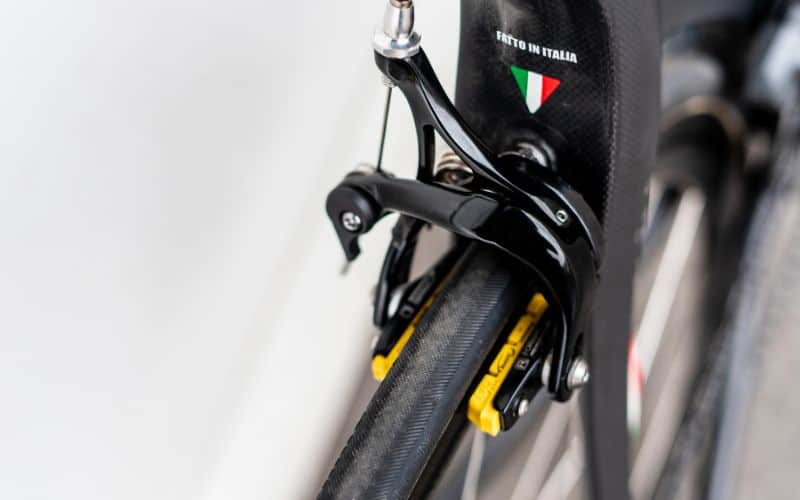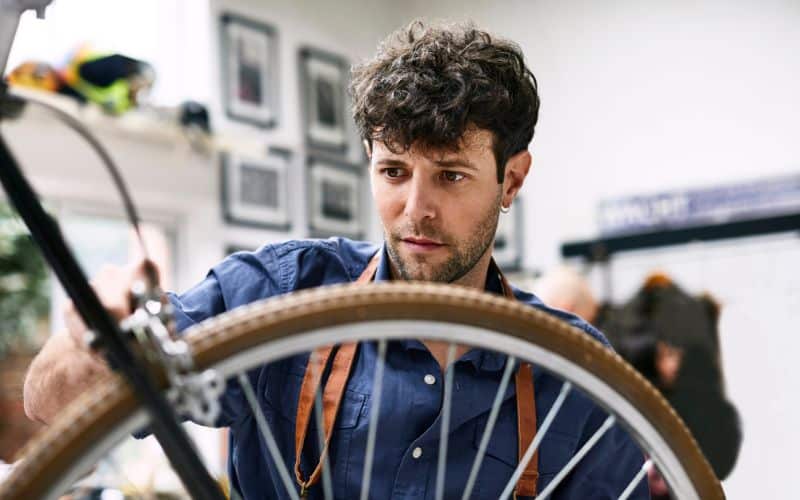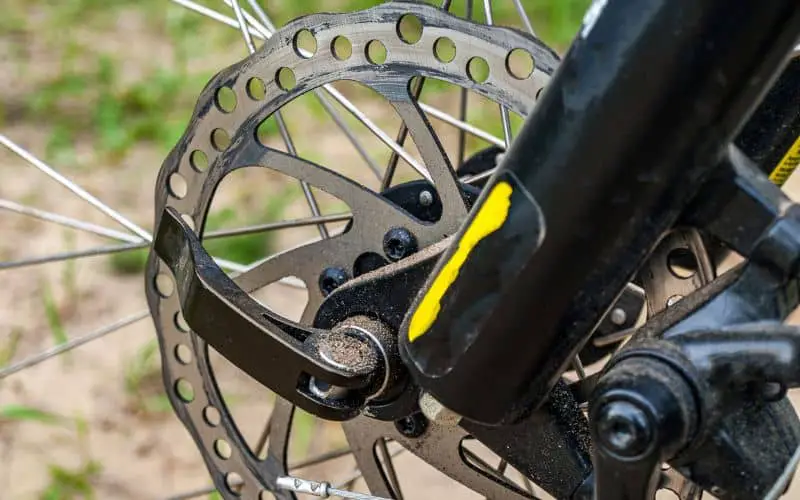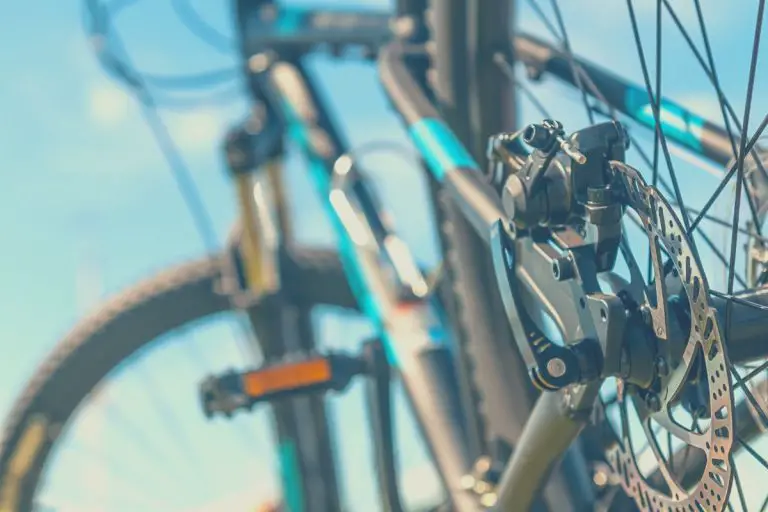Being able to stop when approaching stop signs or if you need an immediate stop to avoid an accident is dependent upon having good brakes on your bike.
If you are like me, you may have had your bike for a while, and start to notice that something isn’t right with the brakes. If you haven’t changed them in a while, then the answer may simply be that it is time to change them, and you will have a few signs indicating that it is time.
When Should I Replace My Bike Brakes?
Bike brakes have a lifespan between 10,000 miles and 15,000 miles in most cases. Some have been known to last a little longer, but that’s with meticulous maintenance and care.
Depending on how often you ride your bike, that can be anywhere from 2-5 years.

Signs I Need to Replace My Bike Brakes
When you start to notice something is off with your bike, chances are you do not think of the brakes. The sounds and feelings will come from the rims, and that is often a misconception early on. Below are signs that it is really your brakes that may be causing the issue.
- Squealing coming from the brake area or a heavy grinding
- Violent vibrations when you press the brakes
- Braking power isn’t strong
One of the first obvious signs is the sounds that will come from the brakes on your bike. Depending on where the damage is on the brake, that could be like air whistling or a grinding sound of metal on metal. Either way, that happens when you press your brake and attempt to stop. It could be coming from the front or rear brakes, so listen closely to which wheel is making the noise.
When you press down for the brakes to stop, you may start to feel violent vibrations. If you think that you pressed them too hard and made the vibration, test them out later when you ease on the brakes and see if the vibration is still happening.
When you try to brake, you may find that you aren’t stopping as fast as you once were. If your braking power isn’t strong, then you may have to drop your feet quickly to add in the stop and avoid an accident. As your brakes start to wear down, this happens gradually. You will start to notice that you need to stop sooner and aid your brakes a lot more than before.

What Happens If I Put This Off?
While it may not seem like this is a big deal to change the brakes on your bike, there are consequences of putting it off. The most obvious is that the longer you wait to replace your brakes, the more danger you put yourself in when you are riding. Whether you ride locally or you are a cross-country trail bike rider, you need to have sufficient brakes for your safety and for those around you.
In addition to causing yourself harm, you could also cause damage to your bike which is more costly down the line. If the brakes start to grind and wear down, they can wear on the bike rims over time. If you have to replace the bike rim and the brakes at the same time, then you have twice the maintenance and more money to spend.
If you have your brakes on the rotor, they can cause damage to that piece. Worst case, you have your entire brake system out of service. For newer bikes, this modification of putting the brakes on the rotor is pretty popular because it stabilizes your bike. If your rotor is damaged, your bike will barely be operable and you will need to make the repair quickly.
Maintenance For Your Brakes
The brakes on your bike should be inspected regularly to ensure they are in working condition. Because they have a long lifespan, it is easy to forget about them. However, their location on your bike means that they could easily be damaged and start wearing down faster.
After each cross-country ride, it is a good idea to look them over and make sure they were not punctured on the ride. Because you are exposed to rocks, sticks, and other debris in the environment, there is a higher risk of damage happening.
You also want to keep your brakes out of moisture to prolong their life. This is one of many reasons why it is a good idea to store your bike inside a garage or inside your home when you are not riding.
If you have hydraulic disc brakes, you will need to change the fluid periodically just like you would the brakes in a car or motorcycle. The hydraulic fluid can lock up over time and stop functioning properly because it is full of debris and worn down.
Related article – How To Clean Bike Brake Pads

Types Of Bike Brakes
While there are a number of different brake types to choose from, the most popular brakes today for cyclers and mountain bikes are disc brakes.
Over the last decade, these brakes have been updated. These improvements have made a big impact on cycling performance. I even upgraded an old bike I had lying around to hydraulic disc brakes to see how it performs. Mechanical disc brakes are still used, but not as much as their hydraulic counterpart.
Hydraulic disc brakes amp up the power and performance of your bike. If you are a trick rider, you are really seeing the effects of how these brakes perform and are durable under some of the most extreme circumstances. They are also powerful for cross-country riders, handling large jumps and allowing you to stop safely on some of the more difficult trails.
In the past, cantilever brakes were the brake option to have and were found on bikes everywhere with their two separate arms. They gave your tire clearance when you stopped and had the best braking performance. The downfall of this brake type is its design makes it easy to be damaged.
You may also be interested in How To Maintain Your Bike – Essential Maintenance Tips.

